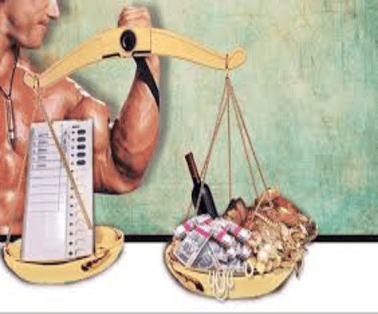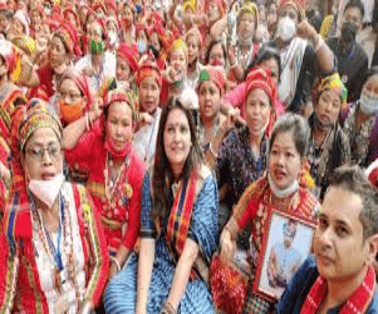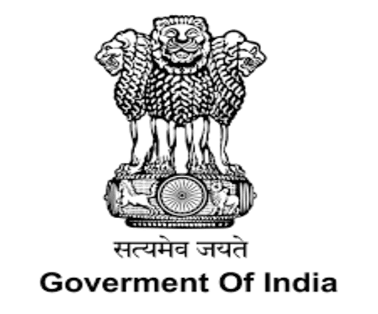Criminalization of politics in India is a growing concern, especially in light of recent cases involving Members of Parliament (MPs), Members of Legislative Assemblies (MLAs), and government employees accused of serious crimes such as sexual harassment of women. These instances highlight ethical failures and the urgent need for electoral reform to uphold moral responsibility and professional ethics in public service.
Key Statistics Highlighting Criminalization of Politics
- According to data from the Association for Democratic Reforms (ADR), the number of candidates with criminal charges being elected to Parliament in India has been on the rise since 2004.
- In the 2009 Lok Sabha, 30% of parliamentarians had pending criminal cases, which rose to 34% in the 2014 Lok Sabha.
- In the 2019 Lok Sabha, 233 (43%) of 543 Lok Sabha members faced criminal charges.
- In the 2019 Lok Sabha elections, 112 MPs (21%) faced serious criminal cases against them, including those of rape, murder, attempt to murder, kidnapping, crimes against women.
What Is Criminalization Of Politics?
- The criminalisation of politics means the rising participation of criminals and people facing criminal charges in politics.
- The term indicates people with criminal backgrounds becoming politicians and elected representatives.
The Growth Of Criminalisation Of Politics In India
- In India, it is not a new phenomenon; the first instances of “booth-capturing” were reported in 1957 and involved hired goons who would mobilize or suppress turnout or vote on behalf of disenfranchised voters.
- At the same time, the costs of contesting elections kept increasing due to a rising population, increasing political competition—the number of political parties increased from 55 in the 1952 general election to 464 in 2014—and the trend of giving freebies for votes.
- This led parties to a competitive search for underground financing, and they played into the hands of criminals and racketeers who had the means to acquire and dispose of large amounts of cash without detection.
- It has been observed that over the last four general elections, there has been an alarming increase in the incidence of criminals in politics.
- In 2004, 24% of the Members of Parliament had criminal cases pending against them; in 2009, that went up to 30%; in 2014 to 34%
- According to the Association of Democratic Reforms (ADR), Nearly half of the recently elected Lok Sabha members have criminal charges against them. This is a 26% increase as compared to 2014.
Effects of Criminalization of Politics
- It limits the choice of voters to elect a suitable candidate. It is against the ethos of free and fair election which is the bedrock of a democracy.
- The major problem is that the law-breakers become law-makers, this affects the efficacy of the democratic process in delivering good governance.
- It also leads to increased circulation of black money during and after elections, which in turn increases corruption in society and affects the working of public servants
- It introduces a culture of violence in society and sets a bad precedent for the youth to follow and reduces people’s faith in democracy as a system of governance.
Causes Behind the Criminalization of Politics
- Un-development, poverty, illiteracy and prismatic nature of Indian social system are collectively responsible for the criminalisation of politics.
- Many politicians in India have established close ties with criminal elements, often using their money and muscle power to win elections
- Many political parties in India have weak internal democratic structures, allowing party leaders to handpick candidates, including those with criminal backgrounds, based on their ability to win elections rather than their integrity.
- The Indian criminal justice system is often characterised by slow, inefficient, and corrupt processes, making it difficult to effectively prosecute and convict politicians with criminal backgrounds.
Landmark Supreme Court Judgments for Decriminalizing Politics
- In 2002, the Supreme Court, in Association for Democratic Reforms (ADR) v. Union of India, mandated the disclosure of information relating to criminal antecedents, educational qualification, and personal assets of a candidate contesting elections.
- The Supreme Court in Lily Thomas v. Union of India (2013) case struck down as unconstitutional Section 8(4) of the Representation of the People Act that allowed convicted lawmakers a three-month period for filing appeal to the higher court and to get a stay on the conviction and sentence.
- In People’s Union for Civil Liberties v. Union of India (2013), the SC recognised negative voting as a constitutional right of a voter and directed the Government to provide the ‘NOTA’ option in electronic voting machines.
- In Public Interest Foundation and Ors. v Union of India (2014) based on recommendations made by the Law Commission in its 244th report, the SC had ordered that trials, in relation to sitting MPs and MLAs be concluded within a year of charges against them being framed.
- The Supreme Court’s decision on information disclosure (Lok Prahari v. Union of India, 2018) paves a way for future constitutional interventions in India’s political party funding regime, including the scheme of electoral bonds.
Legal Framework for Disqualification of Criminal Candidates
- In this regard, Indian Constitution does not specify as to what disqualifies a person from contesting elections for the Parliament, Legislative assembly or any other legislature.
- The Representation of Peoples Act 1951 mentions the criteria for disqualifying a person for contesting an election of the legislature.
- Section 8 of the act, i.e., disqualification on conviction for certain offences, according to which an individual punished with a jail term of more than two years cannot stand in an election for six years after the jail term has ended.
Conclusion
The criminalization of politics in India, particularly with the rise in serious crimes against women by elected representatives, poses a grave threat to the democratic fabric of the nation. To safeguard democracy, ethical governance, and rule of law, decisive steps must be taken to cleanse politics of criminal influence.
To Download Monthly Current Affairs PDF Click here
Click here to get a free demo
Discover all about CLAT Exam



